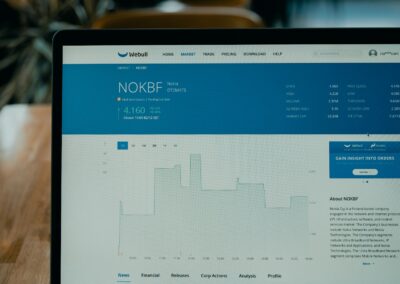Understanding Different Data Models in NoSQL Databases
Introduction to NoSQL Database Models
NoSQL Database Models have revolutionized data management by offering flexible data models that cater to diverse application needs. Each NoSQL data model—document store, key-value store, column-family store, and graph database—serves specific purposes, allowing businesses in Saudi Arabia and the UAE to optimize data storage and retrieval based on their unique requirements.
The Document Store Model
Document stores store data in flexible, JSON-like documents, making them ideal for semi-structured data. This model supports agile development and scalability, enabling businesses in Riyadh and Dubai to manage evolving data schemas efficiently. Document-oriented databases like MongoDB exemplify this approach, facilitating rapid application development and deployment.
The Key-Value Store Model
Key-value stores pair unique keys with associated values, offering fast and efficient data retrieval. This model excels in handling high-volume, simple data structures, which is beneficial for real-time applications and caching mechanisms. Businesses leveraging key-value databases such as Redis enhance their operational efficiency and responsiveness, crucial in dynamic market environments.
The Column-family Store Model
Column-family stores organize data into columns instead of rows, optimizing query performance for large-scale data sets. This model is well-suited for analytics and time-series data storage, empowering organizations in Saudi Arabia and the UAE to derive actionable insights swiftly. Apache Cassandra exemplifies the column-family approach, supporting distributed, fault-tolerant data management.
The Graph Database Model
Graph databases represent data as nodes, edges, and properties, enabling complex relationship queries with high precision and speed. This model is ideal for applications requiring deep data connections, such as social networks, recommendation engines, and fraud detection systems. Businesses adopting graph databases like Neo4j leverage interconnected data to innovate customer experiences and operational efficiency.
Integration of NoSQL Models in Business Strategy
Integrating diverse NoSQL database models into a cohesive data strategy requires strategic leadership and management skills. Business executives and mid-level managers in Riyadh and Dubai must align technological investments with organizational goals, fostering innovation and competitive advantage. By embracing the versatility of NoSQL databases, companies can streamline operations, enhance data-driven decision-making, and adapt swiftly to market demands.
Future Trends in NoSQL Database Adoption
The future of NoSQL databases in Saudi Arabia and the UAE looks promising, with advancements in AI, machine learning, and IoT driving demand for scalable, flexible data solutions. As businesses continue to digitalize their operations, the role of NoSQL models will expand, offering robust support for emerging technologies and data-intensive applications.
Conclusion
In conclusion, NoSQL database models represent a pivotal advancement in modern data management, empowering businesses across Saudi Arabia and the UAE to harness the full potential of their data. Whether leveraging document stores for flexibility, key-value stores for speed, column-family stores for scalability, or graph databases for complex relationships, organizations can achieve unprecedented insights and operational efficiency. By staying abreast of technological innovations and embracing agile data strategies, businesses can thrive in an increasingly competitive global landscape.
For business executives, mid-level managers, and entrepreneurs, understanding and implementing NoSQL database models is not just a technological choice but a strategic imperative for sustained growth and innovation.
—
#NoSQLDatabaseModels, #DataManagement, #BusinessTechnology, #LeadershipSkills, #ProjectManagement, #SaudiArabia, #UAE, #Riyadh, #Dubai
























